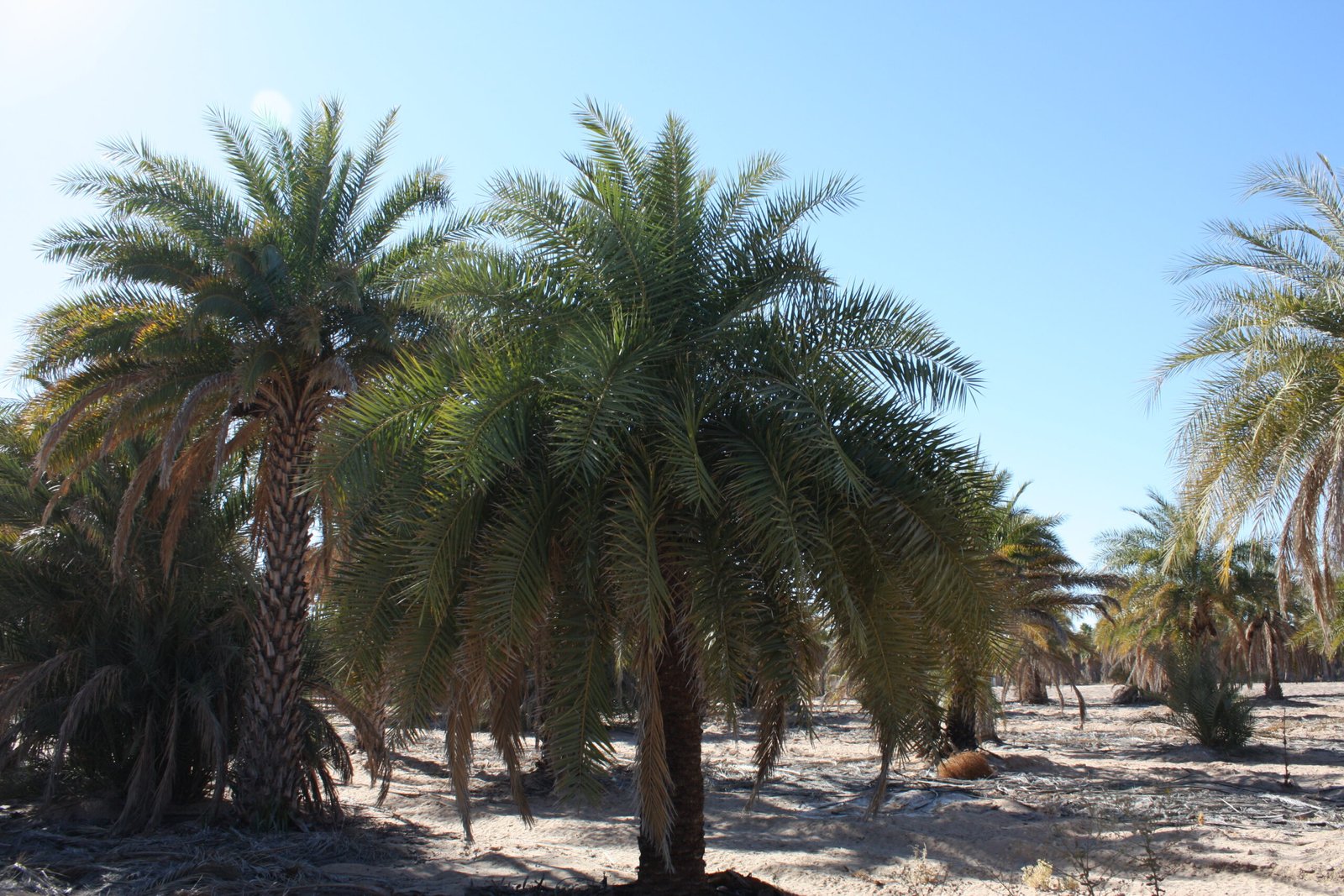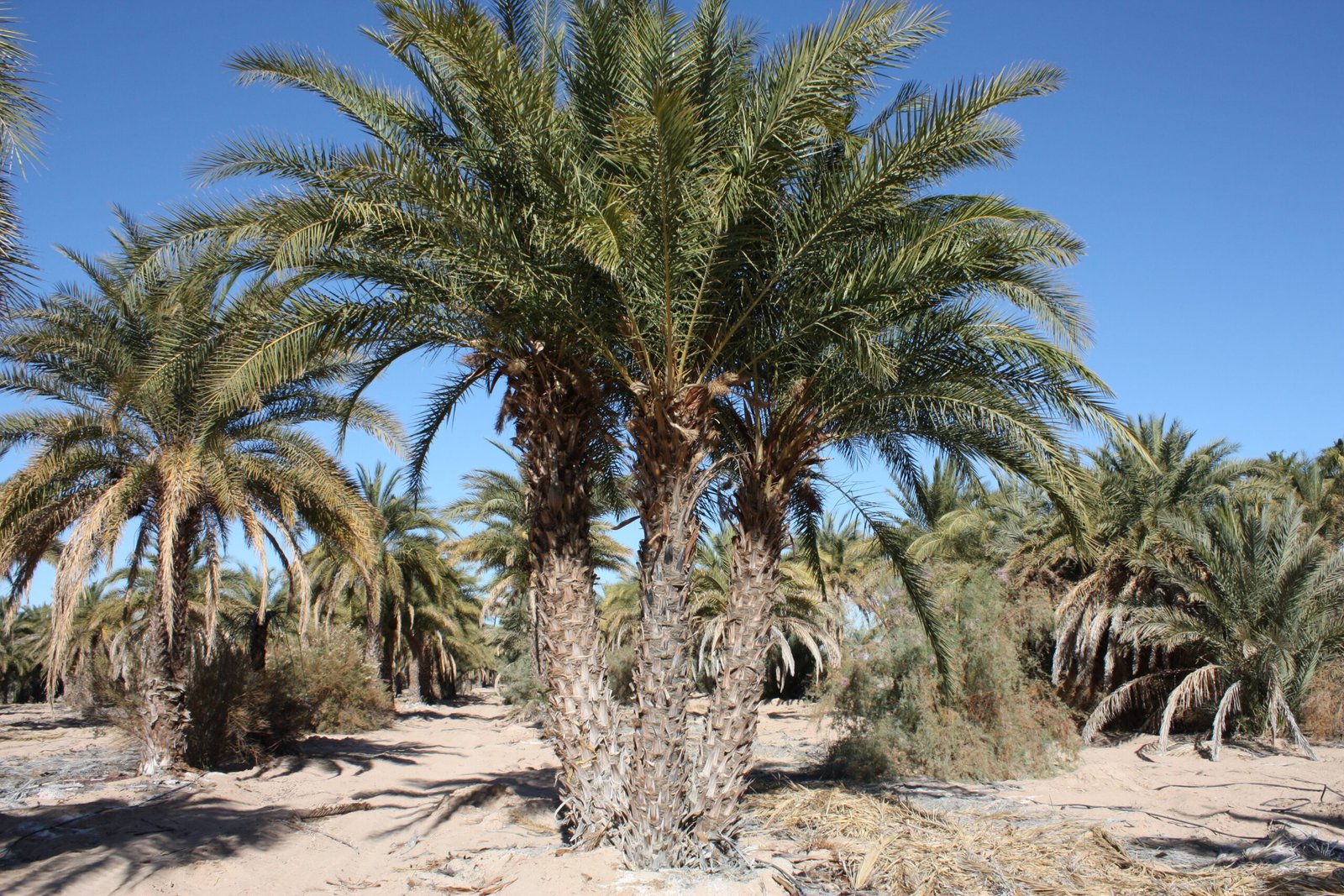Sylvester Palm
Palm Overview
Botanical Name: Phoenix Sylvestris
The Sylvester Palm, also known as the Silver Date Palm, is a striking, low-maintenance palm prized for its elegant silhouette and silvery-blue foliage. Native to India and South Asia, it features a single, stout trunk with a beautifully patterned diamond-cut texture and a graceful canopy of arching fronds that can reach up to 10 feet long.
This palm grows up to 40–50 feet tall and spreads 15–25 feet wide, making it a perfect statement tree for driveways, resorts, or upscale landscapes. Its silvery-green fronds provide soft filtered shade, and it produces ornamental fruit that attracts birds.
Highly drought-tolerant, cold-hardy (to around 15°F), and resilient in poor soils, the Sylvester Palm combines tropical beauty with rugged adaptability—an ideal choice for both residential and commercial properties.
Pricing
$450.00 – 24″ Box (4 feet tall)
$90.00- 15 gallon bucket
$45.00- 5 gallon bucket
$29.00- 3 gallon bucket
$100.00 per foot for custom dig tree
*Tax not included
Plant Characteristics
| Trait | Description |
|---|---|
| Mature Height | 40–50 feet (12–15 meters) |
| Canopy Spread | 15–25 feet (4.5–7.5 meters) |
| Growth Rate | Moderate |
| Form | Tall, single-trunk palm with a full, symmetrical canopy; ideal for elegant, vertical landscape accents |
| Trunk | Stout and upright with a distinct diamond-cut texture from trimmed frond bases; often sculpted for a polished look |
| Fronds | Long, graceful, feather-like fronds (pinnate), typically 8–10 feet in length |
| Foliage Color | Silvery-blue to blue-green; offers a stunning visual contrast against other greenery |
| Leaf Texture & Shape | Stiff, arching leaves arranged in a dense, balanced crown; adds volume and movement to the landscape |
Environmental Needs
| Trait | Description |
|---|---|
| Sunlight | Full sun is best for healthy growth and rich foliage color |
| Soil | Tolerates a wide range – sandy, loamy, or even clay – as long as well-drained |
| Watering | Drought-tolerant once established, but benefits from deep watering during hot or dry spells |
| Hardiness Zones | USDA Zones 8b–11; cold-hardy to around 15°F (-9°C) |
Fruit and Flowering
| Trait | Description |
|---|---|
| Flowers | Creamy white to yellowish flowers bloom in clusters (spring to summer) |
| Fruit | Small, purple-black dates (ornamental, not typically edible); attracts birds and wildlife |
| Sex | Dioecious – male and female flowers grow on separate trees (fruiting only on females with male pollination nearby) |
Uses
Makes an impressive focal point for entryways, medians, or open lawn spaces
Perfect for resort-style designs, luxury homes, and commercial landscapes
Low maintenance and pest-resistant
Tolerates heat, drought, wind, and occasional cold snaps
Can be planted in rows or clusters for formal, symmetrical landscaping
Maintenance
Remove dead or damaged fronds near the base of the canopy (1–2 times per year).
- You can diamond-cut or “pineapple cut” the trunk for a sculpted, decorative look.
Water deeply and infrequently to encourage strong root growth.
Newly planted palms need regular watering for the first 6–12 months.
Once established, it’s drought-tolerant, but will benefit from occasional deep watering during extreme heat or dry spells.
In areas where temps may drop below 20°F, use frost cloth or trunk wraps to protect the palm during cold snaps.

